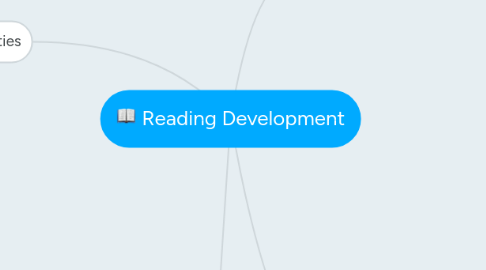
1. Reading Difficulties
1.1. Dyslexia: general term for language/literacy learning disability. (Reading Rockets, 2016)
1.2. Aphasia: communication disorder due to brain damage. Can cause writing, reading, speaking, and listening problems, but is not an intelligence issue. (ASHA, 2016)
1.3. Dysgraphia: neuro-developmental disorder that causes illegible/underdeveloped hand writing (ASHA, 2016).
1.4. Strephosymbolia: a disorder that causes someone to see letters, words, phrases, and symbols either reversed or transposed (Merriam-Webster, 2016).
1.5. Slow Processing Speed: auditory, phonological, or language disorder that causes a delay in the processing of information (Reading Rockets, 2016).
1.6. Decoding Problems: When a child lacks the ability or knowledge of letter-sound relationships necessary to pronounce words (Reading Rockets, 2016).
1.7. Lack of reading strategies: Most basic reading strategies are taught to students during early childhood and elementary school. A child who lacks an understanding of different reading strategies, they are more likely to suffer from a reading disability and be behind grade level expectations.
1.8. Fluency Issues: an inability to read smoothly which can be caused by things such as decoding problems, lack of sight word knowledge, trying to read text that is to difficult. Students with fluency issues get frustrated, have a hard time comprehending what they read, and can be unmotivated (Reading Rockets, 2016).
1.9. Comprehension Problems: Students may not fully understand what they are reading due to decoding issues, lack of background knowledge, or a lack of critical thinking skills (Reading Rockets, 2016).
1.10. Recall and Retrieval Problems: Memory issues that effects a child's ability to use stored memories in connection with what they are reading (Reading Rockets, 2016).
1.11. A student who lacks motivation will not have the will power or desire to improve their reading skills. A lack of motivation can be caused by any number of things including reading difficulties, lack of support, and a lack of personally interesting reading material.
1.12. Aliteracy: a simple lack of interest in reading, even when having the ability to and strategies necessary for reading (Merriam-Webster, 2016).
2. References
2.1. ASHA. (2016). American Speech-Language-Hearing Association. Retrieved from www.asha.org
2.2. Gillet, J.W., Temple, C., Temple, C., & Crawford, A. N. (2012). Understanding Reading Problems: Assessment and Instruction (8th ed.). Boston, MA: Pearson Education.
2.3. Merriam-Webster. (2016) Medical Dictionary. Retrieved from www.merriam-webster.com/medical
2.4. Reading Rockets. (2016). Reading Rockets: Launching young readers! Retrieved from readingrockets.org.
3. Assessing Reading Skills
3.1. Purpose
3.1.1. To guide & assess the success of instruction, to provide feedback, to help determine student placement, to help develop individualized practices and strategies, and to reflect on teaching practices.
3.2. Types of assessments:
3.2.1. Running records used to monitoring and diagnosing
3.2.2. Informal Reading Inventories used to measure reading abilities in detail.
3.2.3. Authentic Assessments use rubrics, work samples, and structured and informal observations to assess abilities during purposeful and authentic reading and writing tasks.
4. Reading Acquisition (Gillet, Temple, Temple, & Crawford, 2012).
4.1. Stages
4.1.1. • Emergent Literacy: PK, K, & 1st. Learning basic concepts and associating reading with pleasure.
4.1.2. • Beginning Reading: 1st. Building sight vocabulary, building upon basic concepts.
4.1.3. • Fledgling Reading: 1st-3rd. building comprehension, accuracy, and fluency skills. Amount of reading is vital for progression
4.1.4. • Developing Reading: 3rd & up. Increase in comprehension, fluency, text length and complexity. Amount of time spent reading greatly influences ability.
4.1.5. • Mature Reading: Ability to think critically about text, use original ideas, analyze, and compare different sources.
4.2. Reading Process
4.2.1. Parallel Process
4.2.2. Complementary to writing
4.2.3. Greatly influenced by instruction and exposure
4.3. Factors effecting reading
4.3.1. Background: Environment, socioeconomic status, cultural influence, exposure to reading at home, prior experiences and knowledge.
4.3.2. • Bio-genetics and Cognitive development & ability
4.3.3. Instructional practices: accommodations & modifications, differentiated learning, assessments

